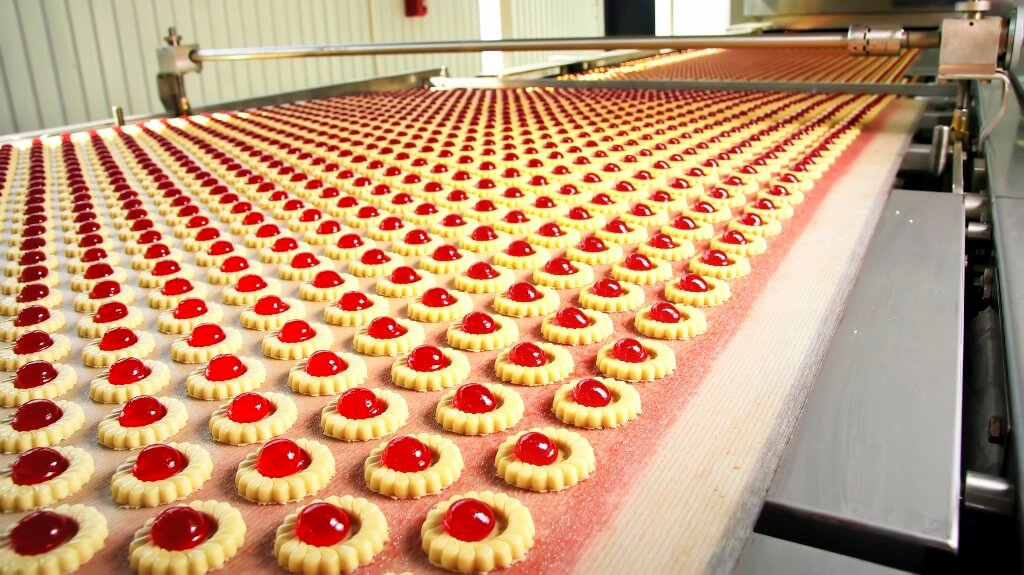
Running a food manufacturing business can be a very profitable enterprise. Yet it also comes with its own very particular set of challenges and needs that must be addressed for your business to become successful. The good news is you can read about the most vital things every food manufacturing business needs to thrive in the post below.
The right equipment
Manufacturing businesses always need very specific and often custom-built equipment, and food manufacturing businesses are no exception to this rule. In particular conveyor lines are used a lot in food manufacture as they allow transport of the food product to the next station where an action is taken, while also allowing for additional processes such as drying or cooling.
Equipment that offers automation is also a smart move because it provides a wide range of benefits in food production. The first of these is that by automating your processes you will be able to ensure consistency between products which is crucial for the reputation of your brand. Secondly, automation will help reduce the instances of error and so make your manufacturing process faster and more efficient.
Lastly, automation can help to maximise safety concerning food products, which is crucially important as customers will be consuming them. Automation can do this by providing standardized safety checking, as well as stricter cleaning of the machines and equipment used in the manufacturing process.
A robust supply chain
All the manufacturing equipment in the world won't do your business much good if you haven't got access to the supplies you need to make your products. There are some specific issues that food manufacturers need to deal with when it comes to their supply chain as well such as working with perishables, foods that need refrigeration and freezing, as well as high volumes. This necessitates not only making sure you have a reliable network of suppliers on which you can rely but that your own supply management procedures and systems are robust as well.
Great employees
While equipment and automation are crucial for success in the manufacturing field, few operators can function with zero employees. This means the people that you employ will always be critical to your success.
With that in mind, to maximise the likelihood of choosing high-quality employees you’ll need to make sure your recruitment process is as robust as possible. Often the best way to do this is to avoid working with agencies and to put someone who has a true vested interest in the success of your enterprise in charge of recruitment and retention. For instance, you could get your head of HR to manage the advertising, shortlisting, interviewing, and onboarding process, while the owner or CEO of the company also sits in on interviews. This approach is particularly important in regions gaining prominence as a strategic location for manufacturers searching for low-cost labor and established supply chains, where competition for top talent can be fierce. By keeping recruitment in-house, you ensure that those making hiring decisions are deeply familiar with your company’s values, culture, and long-term goals, ultimately leading to a stronger, more cohesive team.
Cleaning supplies & protocols
Cleanliness is critical for all food manufacturing businesses because they are not only working to create products that people will consume, but they are also working with ingredients that are degradable and can easily break down, rot, or mold. What this means is that any equipment that is used, as well as the environment in which food is being produced, needs to be subject to thorough cleaning schedules at regular intervals.
Indeed, there need to be specific cleaning schedules implemented on a daily and weekly and deep cleaning schedule usually every month to ensure safety and compliance.
Compliance and safety measures
Talking of compliance and safety, there are other things your food manufacturing business will need to operate safely and legally. One such thing is to make sure that you have plenty of employees with a current SQF Certification working for you. This is because the Safe Quality Food (SQF) certification is used across all sectors of the food industry, from food manufacturing to packaging and even distribution and is recognized worldwide. By making sure that the people in your company responsible for food safety have this qualification you will show both the government and your customers that they can trust your product as its been made under the right conditions.
Pest control
Pest control should never only be reactive when it comes to food manufacturing, because by the time you know you have a problem it can already cost you dearly in wasted resources. To that end, you will need to integrate pest control and minimization practices into every stage of your manufacturing process from beginning to end. This means you will need to ensure the proper storage of raw ingredients, institute pest control measures within your facility, and train your employees in ways to both spot and minimise pest infestation.
Thanks for signing up to Minutehack alerts.
Brilliant editorials heading your way soon.
Okay, Thanks!